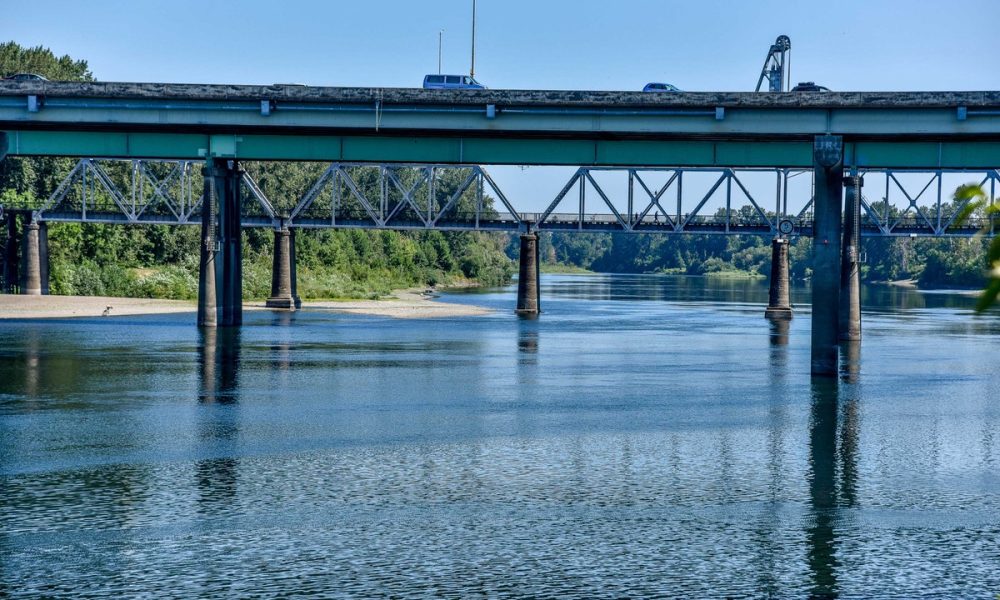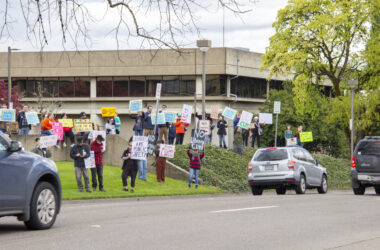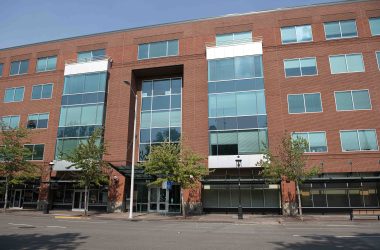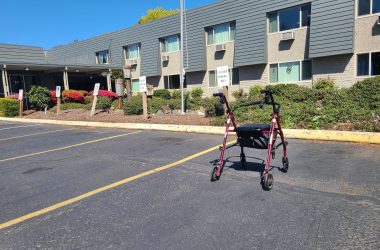 The Marion Street Bridge pictured last summer. (Salem Reporter files)
The Marion Street Bridge pictured last summer. (Salem Reporter files)
Salem city councilors have a massive to do list for 2019. They are set to talk about it at a work session Wednesday.
Budgetary shortfalls, traffic problems, homelessness and environmental impacts will headline the work session, slated for 6 p.m. at council chambers, 555 Liberty St. S.E.
City officials hold the wide-ranging meeting annually to decide of the year’s priorities.
“Really it’s taking your time to identify core issues and resolving conflict through communication, education, and identifying the processes, having those strategies in place to remove barriers,” said councilor Sally Cook.
A staff report released Thursday shows councilors will have a lot to consider. Read the staff report HERE.
Homelessness will remain a dominant topic. Councilors will revisit both the city’s role in building a sobering center downtown, enacting recommendations from its Downtown Homelessness Task Force.
Regarding the sobering center, the city has local urban renewal tax revenue and a $330,000 state grant for construction, but there is a hold up on expected federal money.
Jimmy Jones, who leads ARCHES’ parent organization, Mid-Willamette Valley Community Action Agency, said federal dollars are delayed because construction could disrupt a Native American burial ground. They are working with the Confederated Tribes of the Grand Ronde to help assess that, Jones said.
“We’re getting to a pivot point,” said Jones. “At some point I’ll have permission to proceed.”
The staff report also notes that the cost to run the center jumped from about $638,000 per year to $950,000. Bridgeway Recovery Solutions, the organization that would operate the sobering center, disclosed the higher costs in a recent budget projection, the staff report said.
“That’s where the sticking point is: Really, who — if anybody — is going to pay that operating cost?” Jones said.
Meanwhile, the Downtown Homelessness Task Force finished its work Aug. 1 with several recommendations, including adding 24-hour public toilets, helping homeless store their belongings, and instituting a single point of contact for homeless people to find services.
Councilor Chris Hoy said he considered the sobering center and the task force recommendations among his top priorities. He added that will want to make sure the city has a plan for water, after the city endured panic last summer when cyanotoxins appeared in the city’s water supply.
City officials expect to see tens of thousands of residents in the coming years which will stress, roads, bridges and housing. Mayor Chuck Bennett said there are a lot of current issues to prioritize, such as homeless, he said council also has to consider the future.
“We should never stop looking ahead,” he said. “This really helps us measure our progress because we know what we’re getting done, so we can check it off, so we’re not circling the same issue year after year.”
Mirroring those concerns are discussion points Wednesday relating to traffic congestion, making streets safer, and the long-fought Salem River Crossing. A work session on the third bridge is slated for Jan. 30, however, and Salem City Council is expected to discuss its future in February.
“My big areas continue to be strong neighborhoods, safe streets and smart growth,” said Cook. “Issues as far as sidewalk and pedestrian safety, as far as transportation and safety, continue to come up in my ward, in addition to safe access to parks and how development grows and impacts the livability of the people here.”
Councilors will also talk about the city’s general fund, which helps pay for many community services like police, parks, the library and more. City expenses, such as workers’ wages and retirement benefits, have risen faster than revenues and the city projects to come up $6 million short this year.
A task force in November said the city could add taxes or a new fee to help generate up to $6 to $8 million a year. The task force proposed an operating fee on utility bills, a payroll tax on workers in Salem, or a local gas tax.
Councilor Matt Ausec noted that finding dollars will be paramount if the city hopes to add services that will help the community grow. He said plans to add affordable housing or grow the city’s Homeless Rental Assistance Program will need reliable funding.
“One thing that helps all of these is revenue, right? That’s where our revenue task force work is going to be very important, to come back with solutions to the revenue issue the city has,” he said.
Have a tip? Contact reporter Troy Brynelson at 503-575-9930, [email protected] or @TroyWB.









